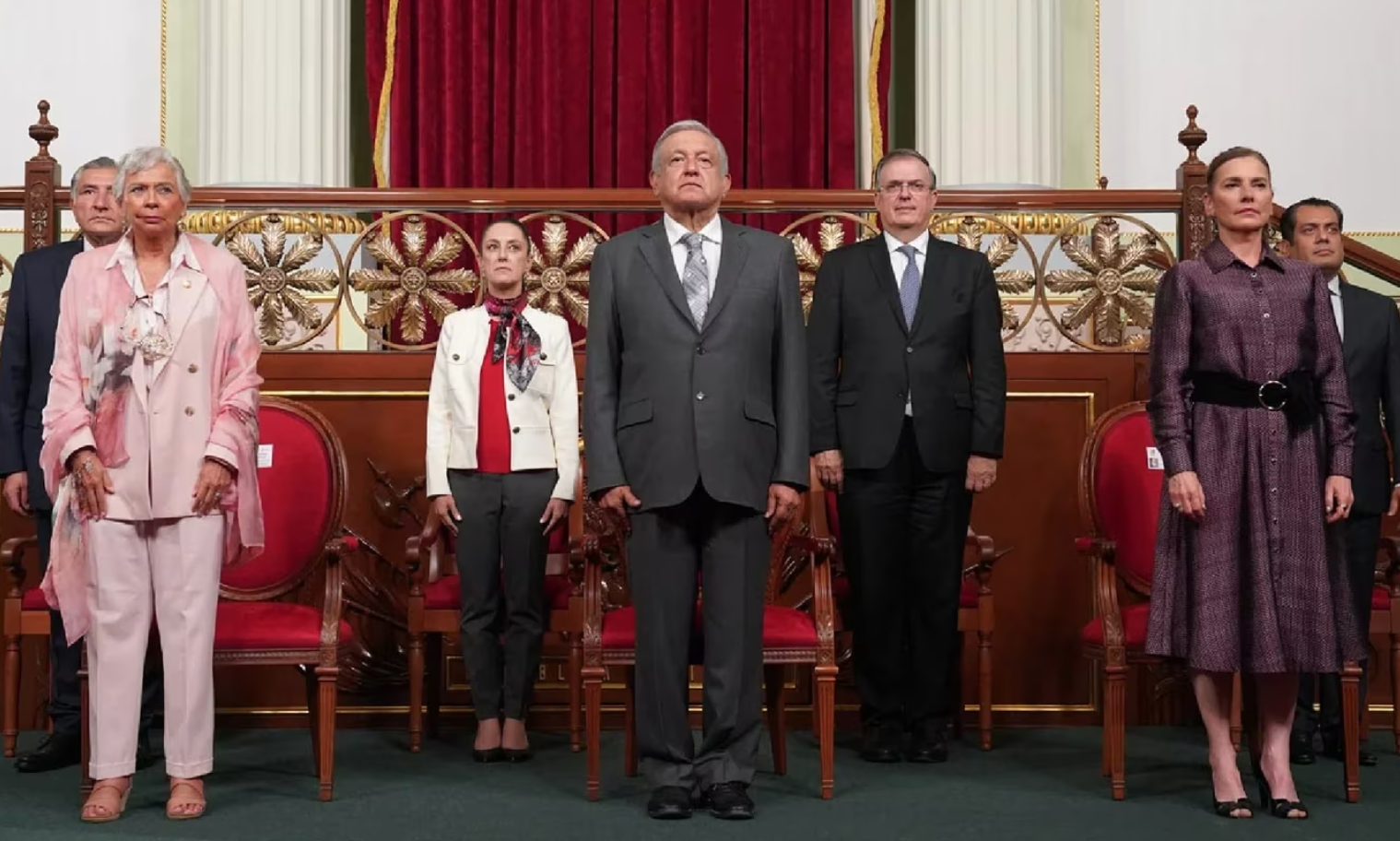Last Sunday, June 11, the National Council of the National Regeneration Movement, Morena, met in Mexico City to legitimize the mechanism by which the candidate for the Presidency of the Republic will be chosen in the elections to be held on June 2, 2024. The approved mechanism is that of a national survey about which no technical information has been provided (question, sample, strata, medium). However, the ruling party has already qualified it as a “democratic” mechanism, although it includes singularities that are far from being so.
The first obligation of the aspirants is to separate from their positions (including those of popular election) so that on June 16 they may appear before the party instances and sign the commitments that have to do with the ideology of what Andrés Manuel López Obrador (AMLO) has offered as a Government of “continuity with change”.
Between June 16 and August 27, the aspirants will have to travel around the country to continue making themselves known and promoting the vote in their favor in the poll that the National Polls Commission of the ruling party, Morena, will have to carry out in September. This, undoubtedly, is an early campaign, since the constitutionally established date for the beginning of the internal election campaigns for all parties is at the end of November.
Even more doubts are generated by the financing of this second phase of “pre-campaign” which starts in the middle of promotional events all over the country, but without having clarified the origin of the money invested before the corresponding authority, which technically means disadvantages among the aspirants.
The resolutions of Morena’s National Council establish the rules of the game that each one of the participants will have to assume in order to reach a successful conclusion at the end of August. At least three of these are debatable from a democratic point of view since they reduce the aspirants to mere propagandists of the so-called Fourth Transformation.
In the first place, public debates and polemics among the aspirants will be avoided, when debate is indispensable in any democratic exercise. Another of the rules, perhaps the most scandalous, calls for avoiding “reactionary, conservative media, adversaries of the Fourth Transformation and supporters of the old regime”, that is critical media, which is unheard of in democratic terms, given the citizens’ right to know.
And, finally, another of the measures establishes that after August 27 the candidates must suspend their activities and cannot carry out actions or statements related to the process. That is to say, the ruling party applicants to the candidacy will not be able to confront each other, with the objective that Claudia Sheinbaum, protected by AMLO, cannot be challenged.
In spite of the fact that the aspiration to the presidential nomination is not to be translated into an open fight, the sanctions for those who dare to violate this promotion process are not defined. It is only mentioned that whoever does so, “beyond benefiting the aspirants, will cause them to lose the confidence of the people”.
Recently, President AMLO has been responsible for publicly exposing the four aspirants and demonstrating his support. The president has covered practically all the political space of his formation, and the nominees have been in his shadow. So, their capabilities and vision of the country have been obscured by AMLO’s pre-electoral narrative.
Two of the candidates held elected positions that are constitutionally non-renounceable, such as the head of the Mexico City Government, Claudia Sheinbaum, considered the president’s bishop in the political game, and the former coordinator of the Morenist faction in the Senate of the Republic, Ricardo Monreal. The other two candidates hold delegated positions, such as the former Secretary of Foreign Affairs, Marcelo Ebrard, and the Secretary of the Interior, Adán Augusto López Hernández.
In addition, at the last minute and on the side of the electoral allies, the senator and heavyweight of the Green Party, Manuel Velasco Coello, and the controversial deputy of the Labor Party, Gerardo Fernández Noroña, have joined the list of aspirants, who, in order to remain stand, must be proposed by their parties.
In short, the consultation mechanism cannot be separated from what until now has been a process under the control of President López Obrador, who acts as the “great voter” of the internal Modernist election. Therefore, there is a possibility of a rupture, which would mean the failure of the mechanism approved by councilors related to Morena, and democratic uncertainty would prevail.
*Translated from Spanish by Janaína Ruviaro da Silva











